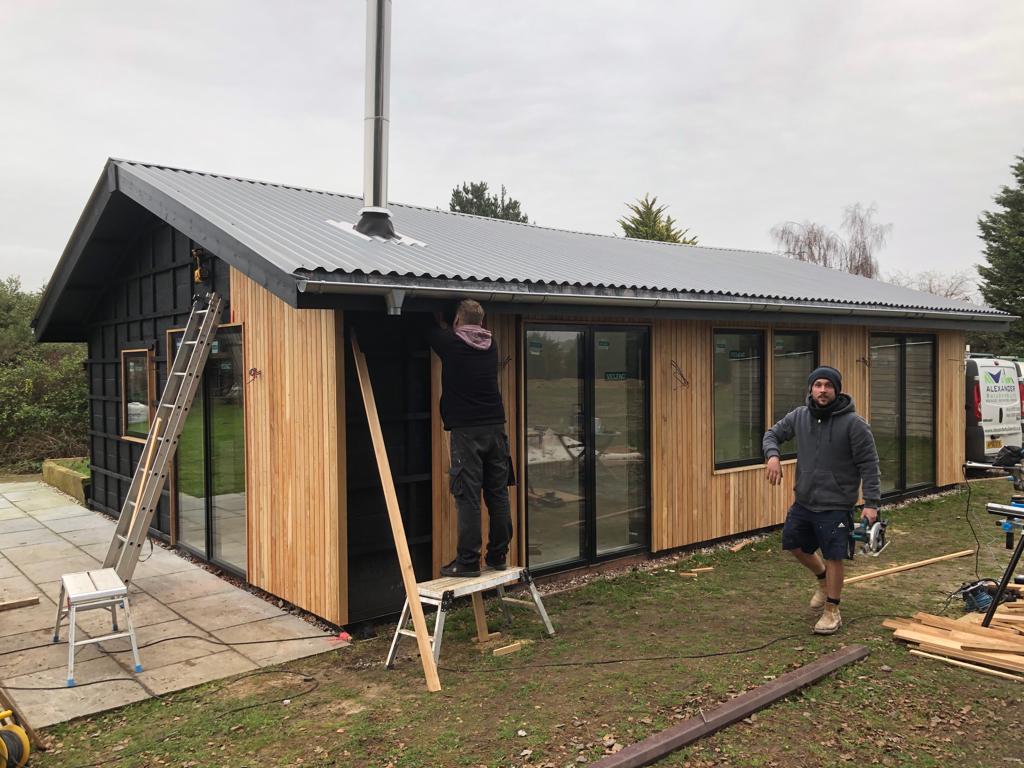When it comes to planning a home extension, timing can make all the difference. Weather conditions, material costs, contractor availability, and many more variables can significantly change as a result of timing. Knowing when the best time to start your build is can help you save money, reduce stress, and ensure the smoothest possible home extension process.
We have created this guide to walk you through the pros and cons of each season, explain what to consider before starting, and share expert insight on when most homeowners in the UK should choose to start their extension projects.
Why Timing Matters
A home extension is a major financial and emotional investment. While many homeowners focus on design and layout, timing can play a surprisingly big role in your project’s success.
The best time to start your extension depends on several factors, including:
Weather conditions (especially for groundwork and external construction)
Builder availability (schedules can fill up months in advance)
Material costs and delivery times
Your own schedule (for example, if you’d prefer work to be completed before summer or Christmas)
By planning ahead and understanding the seasonal pros and cons, you can set realistic expectations and make sure your project runs as efficiently as possible.
Spring: A Popular Time to Begin
Spring is often considered the ideal time to start a home extension project.
The weather begins to improve, days are longer, and it’s generally easier for builders to carry out groundwork and exterior work without delays. Materials can also dry properly, helping to avoid common cold-weather issues such as damp or cracking.
Pros:
Mild weather and good working conditions
The ground is no longer frozen, meaning it’s easier to dig foundations
Depending on the size of the project, you may be able to complete the build before winter
Cons:
Due to it being a great time of year, many builders’ schedules fill up quickly, so book early
If you’re hoping to enjoy your new space by the summer, whether that’s a kitchen extension opening onto the garden or a new living area, spring is a great time to begin.
Summer: Great Conditions but Busy Schedules
Summer offers the best weather for construction. Dry conditions, long daylight hours, and fewer weather-related delays make it ideal for exterior work like roofing, bricklaying, and rendering.
However, this also makes summer the busiest time of year for builders. You may need to book several months in advance to ensure your project goes ahead on time.
Pros:
Warm, dry weather that is perfect for building work
Faster progress thanks to long daylight hours
Cons:
Higher demand for builders, leading to limited availability
Some materials suppliers may raise prices due to peak-season demand
If you can plan ahead and secure your builder early, summer can be the smoothest, most efficient time to build.
Autumn: Ideal for Indoor Work
Autumn can be a smart choice for homeowners who want their extension completed before Christmas or the coldest months.
While days become shorter, the weather is often still mild enough for building work, and contractors’ schedules start to open up after the summer rush.
Pros:
Comfortable working conditions
Easier to schedule builders after peak summer months
Potentially lower material costs as demand drops
Cons:
Weather can turn quickly, especially from late October
Shorter daylight hours can slightly slow progress
For smaller or partly indoor projects, like kitchen extensions or garage conversions, autumn is a great balance between good availability and manageable weather.
Winter: Possible but Challenging
Winter is generally the least popular season to start a home extension, especially for major exterior work. Cold temperatures, frost, and rain can cause issues with concrete setting, plastering, and brickwork.
However, if you’re focusing mainly on interior renovations or planning stages, winter can still be a productive time to prepare.
Pros:
Builders may have more availability
Good time to complete design and planning stages
Can start early, so work is ready for spring
Cons:
Risk of delays due to bad weather
Difficult conditions for outdoor construction
Short daylight hours
Many homeowners use the winter months to finalise plans, secure permissions, and book builders, ready to start as soon as spring arrives.
Our Expert Recommendation
At Alexander Builders Suffolk, we usually recommend starting a home extension between March and September, depending on the scale of your project and your personal goals. However, we have and will adapt to your exact needs and timings.
If you’re planning an extensive build, getting started in early spring allows plenty of time for completion before the colder, wetter months. For smaller or internal projects, autumn can be a great opportunity to take advantage of open builder schedules.
Ready to Start Your Home Extension Project?
Whether you’re hoping to create a new open-plan kitchen or add valuable living space, Alexander Builders Suffolk can help you plan, design, and build your ideal home extension.
We’ve completed projects across Ipswich, Suffolk, and the surrounding areas, delivering high-quality workmanship and honest advice every step of the way.
Contact our friendly team today to request your free quote and start planning your dream extension.

Thinking of starting a project?
Get in touch today to speak with one of our specialists:
